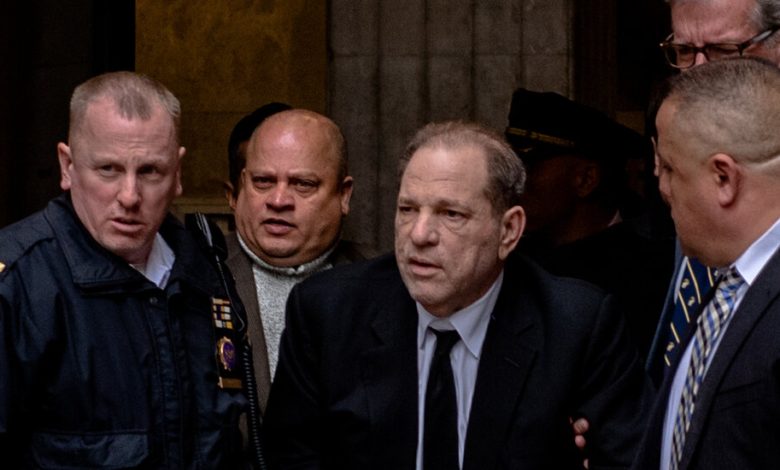Weinstein’s Conviction Is Overturned: 5 Takeaways

In a 4-to-3 decision on Thursday, New York’s highest court overturned Harvey Weinstein’s 2020 conviction on felony sex crime charges, a reversal that horrified and dismayed many of the women whose decision to speak out against Mr. Weinstein, a prominent Hollywood producer, accelerated the #MeToo movement.
The New York Court of Appeals agreed with Mr. Weinstein’s defense team that the trial judge who presided over the sex crimes case in Manhattan, Justice James Burke, made a critical error when he let prosecutors call as witnesses several women who testified that Mr. Weinstein had assaulted them, even though none of those allegations had led to charges.
The women became known as Molineux witnesses, a term that refers to trial witnesses who are allowed to testify about criminal acts that the defendant has not been charged with committing. In writing for the majority, Judge Jenny Rivera said permitting such testimony in Mr. Weinstein’s case had served to wrongly “diminish defendant’s character before the jury.”
The ruling, four years after Mr. Weinstein was convicted of forcibly performing oral sex on a production assistant and of raping an actress, did not surprise many legal analysts who had questioned whether prosecutors had taken too big a risk in their efforts to win over the jury.

The Harvey Weinstein Appeal Ruling, Annotated
Read the ruling from New York’s top court that overturned the 2020 conviction of Harvey Weinstein on felony sex crime charges in Manhattan, with context and explanation by New York Times journalists.
In its decision, the court came to the conclusion that prosecutors had done just that and, along with Justice Burke, had violated a central tenet of criminal trials: Defendants should be judged only on the charges against them.